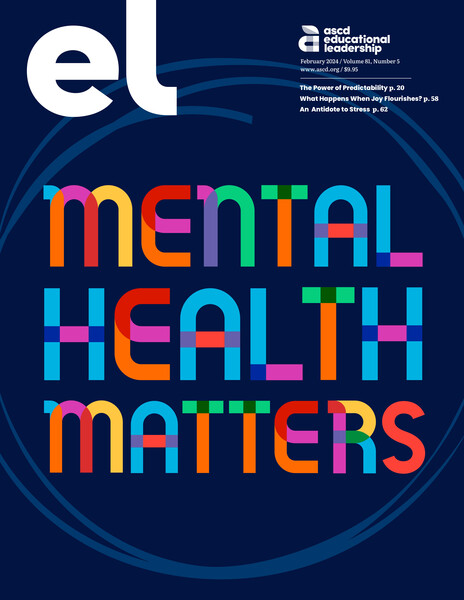
One morning a few months ago, I finished my morning breakfast routine, and my thoughts jumped to, What’s next? As I do every morning, I started to plan the meetings, tasks, and other things I needed to do. On this day, though, for no particular reason, it struck me that tackling one task right after another might help me get things done, but it didn’t tell me if I was doing the right things.
That morning, I recognized that I needed to start disrupting my pattern of nonstop tasking. I realized I needed to develop a regular habit of reflecting, looking back and looking ahead in terms of what’s happening in my life to consider whether I’m doing the right task, not just the next task. Since that morning “wake up,” I’ve deepened my commitment to making reflection a daily habit. Here are five of my favorite reflection practices I’ve tried over the years.
1. After-Action Review (AAR). The U.S. Army (2004) has developed a simple conversational framework people can use after taking any action. Team members who use the AAR process together look back on how an activity went and look ahead to identify what to do better next time by asking four questions: What was supposed to happen? What really happened? What accounts for the difference? What should we do differently next time?
When I first started studying instructional coaching more than 20 years ago, my coaching team used these questions each Friday to reflect on how effectively we had each coached “our” teachers that week and what we could do to improve. Since then, I’ve used these questions often to reflect after completing an activity (say, a coaching conversation or presentation) or at the day’s end to think over the events of the previous few hours.
2. PERMA Review. In his book Flourish (2011), Martin Seligman identified five essential elements needed for lasting happiness and well-being: positive emotions, engagement, relationships, meaning, and accomplishment (PERMA). At different stages of my life, I’ve used this PERMA acronym to reflect on my own well-being. Daily, I would rank on a scale of 1–5 how well I had experienced each element. This helped me see what factors were enhancing or inhibiting my happiness and consider what I might change to boost my well-being. Each element of the PERMA model pointed me to helpful insights at different times, particularly related to work choices I could make to be more engaged and communication choices I could make to improve my relationships with those closest to me.
3. Life-Giving Review. Considering several elements of well-being at the start or end of every day may seem overwhelming. One alternative is to simply consider whether each day’s events were more “life-giving” or “life-taking.” Life-giving experiences are positive, affirming experiences that give you energy, like engaging in a beloved hobby. Life-taking experiences are the opposite.
To do a life-giving review, look back on the events of your day and reflect on the life-giving or life-taking aspects of each experience. Then, identify what you might do differently moving ahead to have more life-giving experiences.
4. One-Sentence Review. Researchers who study habits, such as Wendy Wood (2019), suggest that people are more likely to sustain change when we develop habits, as opposed to relying on executive control or willpower. For this reason, if you want to make reflection a regular part of your life, it might help to begin with a small practice you can easily repeat until it becomes a daily habit.
A simple way to build a reflective habit is to write one sentence at the end or start of each day. The sentence might describe one thing you can do to improve your life, something for which you’re grateful, or a highlight of the day. Over time, this list of daily sentences will become pages you can periodically look over to identify patterns in your experiences; for instance, you might realize that most of the “highlights” you record happened outside, or with certain people. Of course, once the one-sentence review becomes a habit, you may wish to try deeper reflective practices.
5. Serious Nothing. I recently told my friend Jan about my morning epiphany that I was always doing the next thing but not asking if it was the right thing. Jan shared an idea she learned from her mentor, Dallas Willard—to disrupt my day by doing “serious nothing.” That means turning off all my devices, putting down my task list, and just pausing to . . . do nothing. Serious nothing could be a quiet time in the morning, a walk, or even sitting in the Starbucks parking lot for five minutes. As Jan explained, people’s deepest insights often come at those times when they aren’t thinking about anything in particular: in the shower, while driving across town, etc. Jan now builds into her day a few minutes where she simply does nothing. Those moments often help her gain insight she might not have gotten if she was focused on efficiently doing her daily tasks.
I do have one warning about this practice, though. I’ve found when I turn everything off and just pause for a few minutes, my serious nothing can turn into a serious nap! But then, I’m pretty certain those naps are another powerful way of increasing my well-being.
References
•
Seligman, M. E. P. (2011). Flourish: A visionary new understanding of happiness and well-being. Free Press.
•
U.S. Army. (2004). The US Army leadership field manual. McGraw Hill.
•
Wood, W. (2019). Good habits, bad habits: The science of making positive changes. Farrar, Straus, and Giroux.






